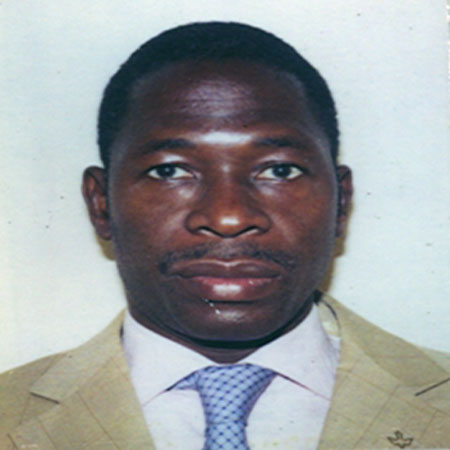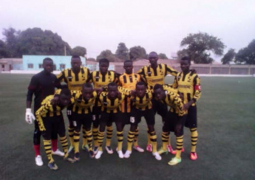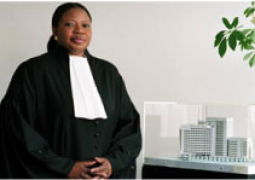
William John Joof former Gambian Ambassador to the Republic of France and at one time Permanent Secretary at Foreign Affairs Ministry in Banjul has been indicted by state prosecutors at the Attorney General's Chambers.
Mr. Joof was yesterday arraigned before senior Magistrate Hilary U. Abeke of the Banjul Magistrates' Court charged with nine counts.
The counts include official corruption, obtaining goods by false pretences, theft, conspiracy to commit a felony, and four counts of abuse of office. He has denied all the charges.
Willy Joof was subsequently remanded in custody at the State Central Prison at Mile 2 following the court's dismissal of his bail application filed by his defence counsel, LS Camara.
Lawyer Lamin Camara in his oral bail application submitted that section 99 (1) of the Criminal Procedure Code gave the court the discretion to grant an accused person bail, except in case of offences punishable by life imprisonment or death.
He adduced that the accused is charged with many counts, which he believed are all bailable offences.
"I also take cognisant of the fact that bail is in the hands of the court," he submitted. I respectfully enjoin your worship to exercise that discretion jealously and in favour of the accused person.
"Your worship has the prerogative under section 99 (1) of the Criminal Procedure Code to grant bail with due regard to the circumstances of this case. The amount should not be excessive as such may tantamount to denial of bail," he further submitted.
According to counsel, this matter is for hearing since there are substantial charges before the court to which a plea has been taken.
"There is no pending charge before this court and it cannot be said the accused will tamper with the investigation," counsel Camara said.
Counsel also submitted that the status of the accused in this country is clear, and there is no possibility of him absconding if granted bail.
According to counsel Camara, the charges date back since 2003, and the accused person has been ambassador and permanent secretary in various ministries in the past.
"The accused also had adequate sureties who are willing, able and ready to stand as sureties if he is granted bail," counsel Camara revealed.
He finally urged the court to grant bail to the accused person.
In response, the Director of Public Prosecutions, Richard N. Chenge, opposed the granting of bail to the accused person.
DPP Chenge urged the court to ask the defence counsel to file a written bail application rather than make an oral application, to which the prosecution will also reply.
According to DPP Chenge, if the accused is granted bail there is a possibility of him (the accused) interfering with the prosecution witnesses.
He made reference to a Nigerian Supreme Court case to further buttress his objection.
"Your worship interfering with our witnesses is the reason for opposing bail to be granted to the accused person," DPP Chenge submitted.
"That the case has started long ago does not mean that the accused cannot escape justice," the chief state prosecutor, who led a team of state prosecutors, told the court.
The accused, Chenge adduced, is likely to abscond if granted bail, stating that there is likelihood that more charges would be filed against the accused, and there is likelihood that the accused may flee justice.
DPP Chenge told the lower court that the nature of their evidence against the accused person is very strong, and asked the trial magistrate to refuse the accused person bail, and remand him in custody pending the outcome of the case.
Defence counsel LS Camara, responding on points of law, referred to the DPP's submission that his client may interfere with the prosecution witnesses. He stated that this is not a summary trial, adding that even the accused did not know who these witnesses are.
The trial Magistrate subsequently ruled that the accused person be remanded in custody, pending the outcome of the case.
Hearing continues on 6th September 2010.
Read Other Articles In Article (Archive)
AFPRC Hospital: Maternal mortality ratio reduced by 50.8% within one year
Aug 28, 2015, 9:37 AM



